 W
WThe Allied Democratic Forces insurgency is an ongoing conflict waged by the Allied Democratic Forces in Uganda and the Democratic Republic of the Congo, against the governments of those two countries. The insurgency began in 1995, intensifying in 2013, resulting in hundreds of deaths. The ADF is known to currently control a number of hidden camps which are home to about 2,000 people; in these camps, the ADF operates as proto-state with "an internal security service, a prison, health clinics, and an orphanage" as well as schools for boys and girls.
 W
WAssam separatist movements are insurgency movements operating in Northeast India's oil-rich state of Assam. The conflict started in the 1970s following tension between the native indigenous Assamese people and the Indian government over alleged neglect, domination, subjugation, political, social, cultural, economic exploitation and internal colonisation through its federal centre in Delhi. The conflict has resulted in the deaths of 12,000 United Liberation Front of Assam (ULFA) members and 18,000 others.
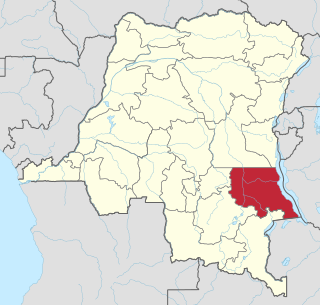 W
WThe Batwa–Luba clashes are a series of ongoing clashes in the Democratic Republic of the Congo (DRC) between the Pygmy Batwa people, and the Luba people starting in 2013.
 W
WThe Boko Haram insurgency began in 2009, when the jihadist group Boko Haram started an armed rebellion against the government of Nigeria. The conflict takes place within the context of long-standing issues of religious violence between Nigeria's Muslim and Christian communities, and the insurgents' ultimate aim is to establish an Islamic state in the region.
 W
WThe Chaambi Operations or Battle of Chaambi is part of the insurgency in the Maghreb (2002–present). In December 2012, the Tunisian Army launched an offensive against the Salafist jihadists in Jebel ech Chambi near Kasserine.
 W
WThe communist rebellion in the Philippines is an ongoing conflict between the Government of the Philippines (GPH) and the New People's Army (NPA), which is the armed wing of the Marxist-Leninist-Maoist Communist Party of the Philippines (CPP). The conflict is also associated with the National Democratic Front of the Philippines (NDFP), which serves as the political wing of the CPP.
 W
WThe dissident Irish republican campaign began at the end of the Troubles, a 30-year political conflict in Northern Ireland. Since the Provisional Irish Republican Army called a ceasefire and ended its campaign in 1997, breakaway groups opposed to the ceasefire and to the peace agreements have continued a low-level armed campaign against the security forces in Northern Ireland. The main paramilitaries involved are the Real IRA, Continuity IRA and Óglaigh na hÉireann. They have targeted the Northern Irish police and the British Army in gun and bomb attacks as well as with mortars and rockets. They have also carried out bombings that are meant to cause disruption. However, their campaign has not been as intensive as the Provisional IRA's.
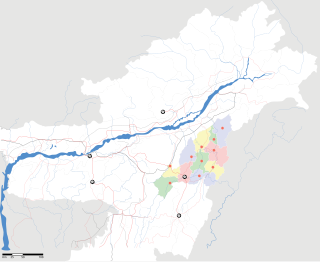 W
WThe ethnic conflict in Nagaland, in northeastern India, is an ongoing conflict fought between the ethnic Nagas and the governments of India and Myanmar. Nagaland inhabited by the Nagas is located at the tri-junction border of India on the West and South, north and Myanmar on the East.
 W
WIn July 2013, at the same time as mass protests began against the 3 July coup d'état which deposed Mohamed Morsi, and in parallel with the escalation of the already ongoing jihadist insurgency in the Sinai Peninsula, pro-Muslim Brotherhood militants started violent attacks against policemen and soldiers in Central and Western Egypt. In the following months, new Islamist armed groups were created to reinstate Islamist rule in Egypt, like Soldiers of Egypt and the Popular Resistance Movement. Since 2013, violence in mainland Egypt has escalated and developed into a low-level Islamist insurgency against the Egyptian government.
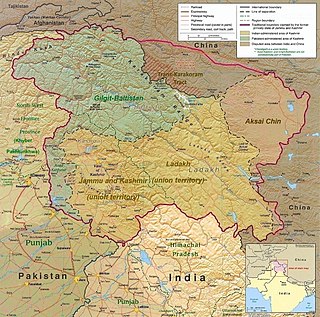 W
WThe insurgency in Jammu and Kashmir is an uprising or revolt against the Indian administration of Jammu and Kashmir, a region constituting the southern portion of the larger Kashmir region, which has been the subject of a dispute between India and Pakistan since 1947.
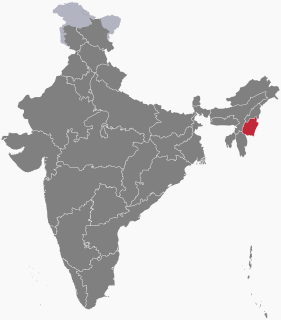 W
WThe Insurgency in Manipur is an ongoing armed conflict between India and a number of separatist rebel groups, taking place in the region of Manipur. The Insurgency in Manipur is part of the wider Insurgency in Northeast India; it combines elements of a national liberation war as well as an ethnic conflict.
 W
WThe Insurgency in Meghalaya is a frozen armed conflict between India and a number of separatist rebel groups which was taking place in the state of Meghalaya. The Insurgency in Meghalaya is part of the wider Insurgency in Northeast India, and was fueled by demands of the Khasi, Synteng and Garo people for a separate state.
 W
WThe Insurgency in Arunachal Pradesh is a part of the larger Northeast India insurgency involving multiple groups trying to separate from or destabilize the province. Because of Arunachal Pradesh's close proximity to the border, many groups are able to use border crossings to promote their terrorist activity. Since Arunachal Pradesh's recapture in the 1962 War, there has been incursions from the Chinese Army in the region further escalating the conflict. The conflict has slowed since the early 2000s due to police arrest of major insurgent leaders. The highly diverse ethnic and religious population of the province has also influenced various groups.
 W
WInsurgency in Northeast India involves multiple armed separatist factions operating in India's northeastern states, which are connected to the rest of India by the Siliguri Corridor, a strip of land as narrow as 14.29 miles (23.00 km) wide. Most factions favour a separate nation while others seek regional autonomy, some groups demand complete independence and others demand religious law.
 W
WThe Insurgency in Ogaden was an armed conflict that took place from 1994 to 2018. It was fought by separatists, the Ogaden National Liberation Front (ONLF), against the Ethiopian government. The war began in 1994, when the ONLF attempted to recreate Greater Somalia by unifying Ethiopia's Somali Region with Somalia. It ended in a peace agreement as part of Prime Minister Abiy Ahmed's reforms.
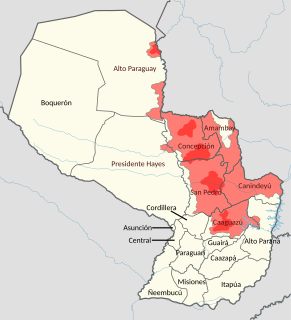 W
WThe Insurgency in Paraguay, also known as the Paraguayan People’s Army insurgency and the EPP rebellion, is an ongoing low-level armed conflict in northeastern Paraguay. Between 2005 and the summer of 2014, the ongoing EPP campaign has resulted in at least 50 deaths in total, the majority of them being local ranchers, private security guards and police officers, along with several insurgents. During that same period the group perpetrated 28 kidnappings for ransom and a total of 85 "violent acts".
 W
WThe insurgency in Tripura was an armed conflict which took place in the state of Tripura between India and several separatist rebel organisations. It was a part of the wider insurgency in Northeast India and was fueled by Tripuris who had become a minority in their own state because of immigration of Bangladeshi immigrants.
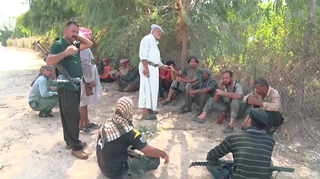 W
WThe Iraqi Insurgency (2017–present) is an ongoing low-level insurgency that began in late 2017 after the Islamic State of Iraq and the Levant (ISIL) lost territorial control in the War in Iraq of 2014 to 2017. Several rebel groups, including ISIL, White Flags and the Iraqi Baath Party fight the Iraqi military and allied paramilitary forces.
 W
WISIL-related terror attacks in France refers to the terrorist activity of the Islamic State of Iraq and the Levant in France, including attacks committed by ISIL-inspired lone wolves. The French military operation Opération Sentinelle has been ongoing in France since the January 2015 Île-de-France attacks.
 W
WThe Ituri conflict was a major conflict between the agriculturalist Lendu and pastoralist Hema ethnic groups in the Ituri region of the north-eastern Democratic Republic of the Congo (DRC). While the two groups had fought since as early as 1972, the name 'Ituri conflict' refers to the period of intense violence between 1999 and 2003. Armed conflict continues to the present day.
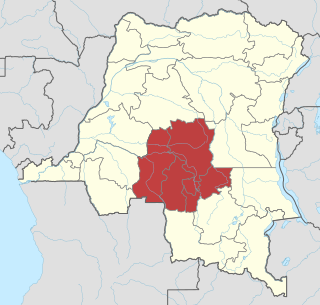 W
WThe Kamwina Nsapu rebellion, also spelled Kamuina Nsapu rebellion, is an ongoing rebellion instigated by the Kamwina Nsapu militia against state security forces in the provinces of Kasaï-Central, Kasaï, Kasai-Oriental, Lomami and Sankuru. The fighting began after the militia, led by Kamwina Nsapu, attacked security forces in August 2016.
 W
WThe Katanga insurgency refers to the ongoing rebellion by a number of rebel groups in the Democratic Republic of the Congo, some of which aim for the creation of a separate state within Katanga. While the insurgency has been active in various forms since 1960, insurgent groups have recently redoubled their efforts after the 2011 jail break that freed Gédéon Kyungu Mutanga, who now commands the majority of the Katangese separatist groups.
 W
WThe Lord's Resistance Army insurgency is an ongoing guerrilla campaign waged by the Lord's Resistance Army (LRA) insurgent group since 1987. Currently, there is low-level LRA activity in eastern Democratic Republic of the Congo and the Central African Republic. The movement is led by Joseph Kony, who proclaims himself the "spokesperson" of God and a spirit medium. It aims to overthrow Yoweri Museveni's Ugandan government and establish a theocratic state based on the Ten Commandments and Acholi tradition.
 W
WThe Insurgency in the Maghreb refers to the Islamist insurgency in the Maghreb and Sahel regions of North Africa that followed on from the Algerian Civil War. The Algerian militant group Salafist Group for Preaching and Combat (GSPC) allied itself with al-Qaeda to eventually become al-Qaeda in the Islamic Maghreb (AQIM). The Algerian and other Maghreb governments fighting the militants have worked with the United States and the United Kingdom since 2007, when Operation Enduring Freedom – Trans Sahara began. While the 2011 Arab Spring affected support for the insurgency, it also presented military opportunities for the jihadists. In 2012, AQIM and Islamist allies captured the northern half of Mali, until being fought back less than a year later following a French-led foreign intervention, which was succeeded by the Sahel-wide Operation Barkhane. In Libya, the Islamic State of Iraq and the Levant (ISIL) has been able to control some limited territory in the ongoing civil war since 2014, amid allegations of local collaboration between the rival AQIM and ISIL.
 W
WMaoist Communist Party of Manipur is a Maoist Armed Revolutionary Party}} in Manipur which aims "to establish a communist society through armed revolutionary war." The Maoist Communist Party of Manipur also intends at liberating the people of Manipur from whom they view as "colonial India."
 W
WThe Naxalite–Maoist insurgency is an ongoing conflict between Maoist groups known as Naxalites or Naxals, and the Indian government. The insurgency started after the 2004 formation of the CPI-Maoists – a rebel group consisting of the PWG and the MCC. Their origin can be traced when the Communist Party of India (Marxist) split in 1967, leading to the creation of the Communist Party of India (Marxist–Leninist). In January 2005, talks between the Andhra Pradesh state government and the CPI-Maoists broke down and the rebels accused authorities of not addressing their demands for a written truce, release of prisoners and redistribution of land. The ongoing conflict had taken place over a vast territory with hundreds of people being killed annually in clashes between the CPI-Maoists and the government every year since 2005.
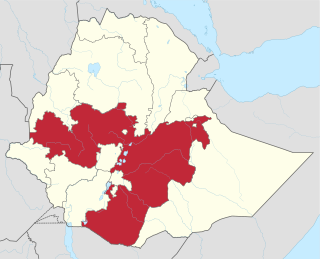 W
WThe Oromo conflict is longstanding conflicts between Oromian separatists and the Government of Ethiopia. The OLF originally fought the Ethiopian Empire to liberate Oromo people and establish an independent Oromia state along with ELF and TPLF. Despite being the largest ethnic group with more than a third of the country’s population, the Oromo people have historically been marginalized from central roles in national politics and, many say, borne the brunt of historical injustices. The conflict began in 1973, when Oromo nationalists established the OLF and its armed wing, the Oromo Liberation Army (OLA).
 W
WThe Rohingya conflict is an ongoing conflict in the northern part of Myanmar's Rakhine State, characterised by sectarian violence between the Rohingya Muslim and Rakhine Buddhist communities, a military crackdown on Rohingya civilians by Myanmar's security forces, and militant attacks by Rohingya insurgents in Buthidaung, Maungdaw, and Rathedaung Townships, which border Bangladesh.
 W
WThe Second Afar insurgency is an ongoing insurgency in the Afar Region of Ethiopia and the Southern Red Sea Region of Eritrea, waged by various Afar rebel groups. Both Ethiopia and Eritrea have supported different rebel groups in the region in a proxy war, and have occasionally engaged in border skirmishes with each other, as well as with opposing rebel groups.
 W
WThe Sinai terror attacks are continuous terrorist attacks in the Sinai Peninsula, Egypt, commenced by Islamist militants against the Egyptian security forces, which has included attacks on civilians. The insurgency began after the start of the Egyptian Crisis, which saw the overthrow of longtime Egyptian president Hosni Mubarak in the Egyptian revolution of 2011.
 W
WThe South Thailand insurgency is an ongoing conflict centered in southern Thailand. It originated in 1948 as an ethnic and religious separatist insurgency in the historical Malay Patani Region, made up of the three southernmost provinces of Thailand and parts of a fourth, but has become more complex and increasingly violent since the early 2000s from drug cartels, oil smuggling networks, and sometimes pirate raids.
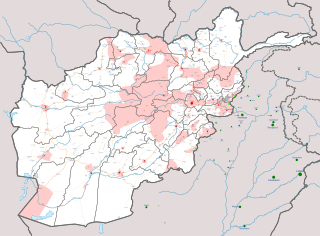 W
WThe Taliban insurgency began after the group's fall from power during the 2001 War in Afghanistan. The Taliban forces are fighting against the Afghan government, formerly led by President Hamid Karzai, now led by President Ashraf Ghani, and against the US-led International Security Assistance Force (ISAF). The insurgency has spread to some degree over the Durand Line border to neighboring Pakistan, in particular the Waziristan region and Khyber Pakhtunkhwa. The Taliban conduct low-intensity warfare against Afghan National Security Forces and their NATO allies, as well as against civilian targets. Regional countries, particularly Pakistan, Iran, China and Russia, are often accused of funding and supporting the insurgent groups.
 W
WThe United National Liberation Front (UNLF), also known as the United National Liberation Front of Manipur, is an insurgent group active in the state of Manipur in the Northeast India which aims at establishing a sovereign and socialist Manipur.